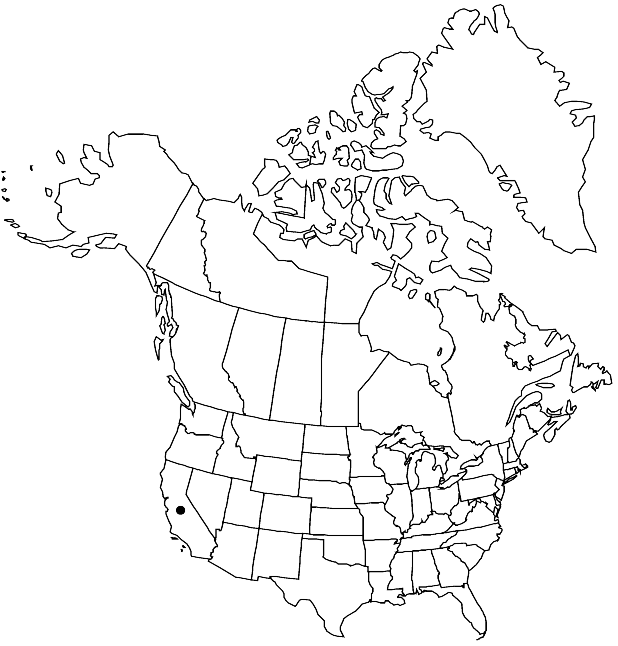Caulanthus flavescens
Ann. Missouri Bot. Gard. 9: 301. 1923.
Annuals; (not glaucous), glabrous or sparsely to moderately hirsute. Stems erect, unbranched or branched distally, 1.7–12 dm, usually hirsute basally. Basal leaves soon withered; blade lyrate, margins sinuate-pinnatifid. Cauline leaves petiolate (median 0.3–2 cm) or (distal) sessile; blade lanceolate to oblong or oblanceolate, 2–13.5 cm × 3–35 mm (smaller distally, base sometimes subauriculate), margins dentate. Racemes without a terminal cluster of sterile flowers, (considerably elongated in fruit). Fruiting pedicels ascending to strongly reflexed, (slender or thickened), 4.5–8 mm, glabrous or sparsely pubescent. Flowers: sepals usually erect, rarely ascending to spreading, oblong, 6–9 × 1.5–2 mm, (not saccate or urceolate); petals (erect), usually white to creamy white, rarely pinkish, (narrowly lanceolate), 7–13 mm, blade 3–5 × 1–1.5 mm, channeled, crisped, claw linear-oblanceolate, 4–8 × 1–1.7 mm; filaments tetradynamous, (erect), median pairs 5–7 mm, lateral pair 3–5 mm; anthers narrowly oblong, equal, 1.5–2.5 mm. Fruits erect, (straight), terete, 3.8–7.7 cm × 1.4–2 mm; valves each with obscure midvein, (glabrous or sparsely pubescent); ovules 44–58 per ovary; style 1–3.5 mm; stigma subentire. Seeds (brown), 1.3–1.8 × 0.9–1.2 mm. 2n = 28.
Phenology: Flowering Mar–May.
Habitat: Serpentine grounds, roadsides, gumbo clay slopes, open hillsides, grassy fields
Elevation: 100-800 m
Discussion
Of conservation concern.
Caulanthus flavescens is distributed primarily from Monterey and San Benito counties north to Napa and San Joaquin counties.
Selected References
None.
Lower Taxa
"elongated" is not a number."thick" is not a number."dm" is not declared as a valid unit of measurement for this property.
